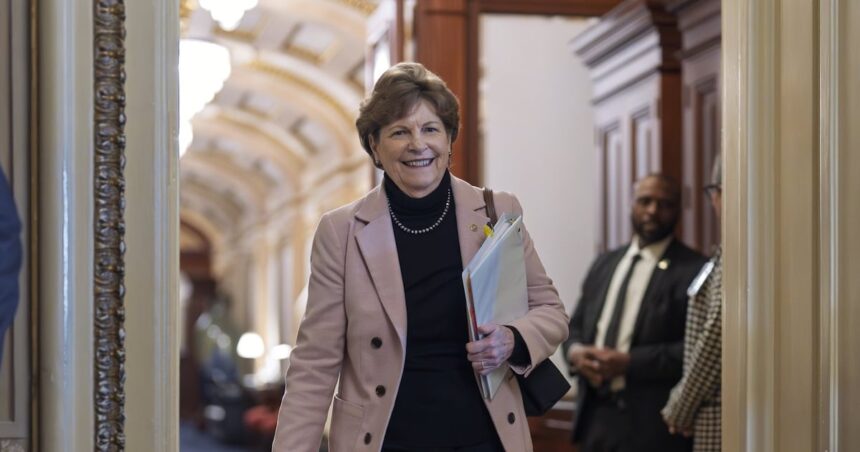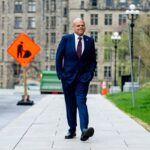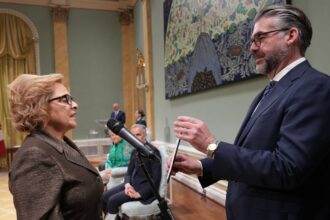In a significant diplomatic exchange that underscores the evolving Canada-US relationship, a high-profile delegation of American senators arrived in Ottawa yesterday for crucial talks with Prime Minister Mark Carney. The visit comes amid growing tensions over bilateral trade issues and represents the first major US congressional delegation to meet with Canada’s new leadership since Carney’s government took office.
“These discussions couldn’t be more timely,” said Senator Chris Murphy (D-Connecticut), who heads the bipartisan delegation. “The relationship between our nations remains our most important bilateral partnership, but there are real challenges that require face-to-face dialogue.”
The delegation, which includes prominent members of both the Senate Foreign Relations and Finance Committees, is expected to address several contentious issues that have strained relations in recent months. Top of the agenda are the ongoing softwood lumber dispute, electric vehicle manufacturing subsidies, and the implementation of the USMCA trade agreement, according to sources familiar with the meetings.
Prime Minister Carney, whose economic expertise has been central to his leadership approach, has reportedly prepared an ambitious agenda for the talks. “Canada seeks a productive partnership based on mutual respect and understanding,” Carney stated during a press briefing before the closed-door meetings. “We welcome our American colleagues with open minds and a commitment to finding common ground on issues that matter to citizens on both sides of the border.”
The visit takes place against the backdrop of shifting economic policies in both nations. Canada’s recent introduction of increased tariffs on specific American imports has raised eyebrows in Washington, while US protectionist measures continue to concern Canadian exporters. Economic analysts suggest these discussions could prove pivotal for stabilizing trade relations before minor irritants develop into major disputes.
Foreign Affairs Minister Mélanie Joly, who participated in the initial meeting, emphasized the strategic importance of maintaining strong cross-border cooperation. “Beyond trade, our security partnership remains essential to North American defense priorities,” Joly noted. “From Arctic sovereignty to cybersecurity threats, the challenges we face require coordinated approaches.”
Energy policy has emerged as another key discussion point, particularly regarding the transition toward renewable resources while maintaining energy security. Senator Lisa Murkowski (R-Alaska), a delegation member with extensive experience in energy policy, indicated that “harmonizing our climate approaches while ensuring energy reliability requires careful navigation of competing priorities.”
The delegation’s three-day visit also includes meetings with business leaders, provincial representatives, and environmental stakeholders, reflecting the comprehensive nature of Canada-US relations. Congressional staff members indicated that the senators hope to gain deeper insights into Canadian perspectives on global challenges, including approaches to China, Russia, and emerging technologies.
Trade experts observe that the timing of this visit—occurring just six months before the US presidential election—adds another layer of complexity to the discussions. “Both sides recognize that this window for meaningful progress may close if the political landscape shifts dramatically after November,” explained Dr. Amelia Richardson, Professor of International Relations at the University of Toronto.
As the talks continue behind closed doors at Parliament Hill, the question remains: Can this high-level engagement translate into tangible policy outcomes that benefit citizens on both sides of the border, or will election-year politics ultimately overshadow the potential for meaningful bilateral progress?










